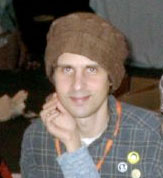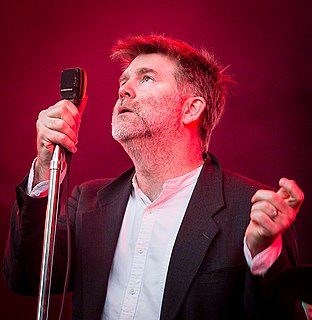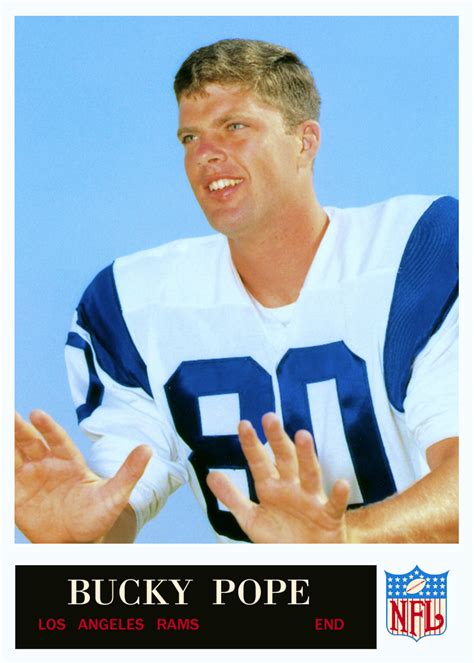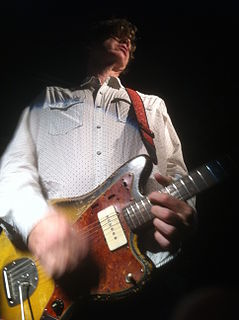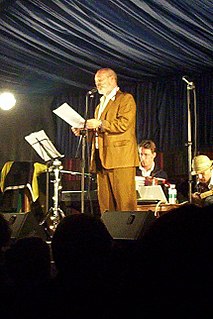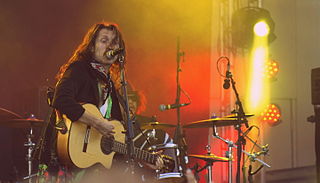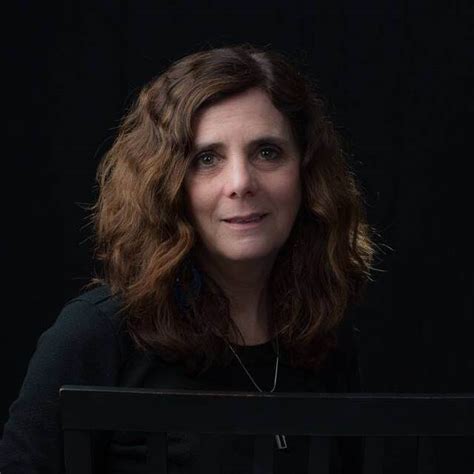A Quote by Kim Gordon
I was talking to somebody about the L.A. hardcore scene, and they were saying that it was hard for them to picture punk rock at the beach. Like, the aesthetic didn't mix or something - black forms in the sand.
Related Quotes
Punk rock was the first thing I found in my life that made me feel acceptable. The thing that got me into punk rock was the idea, "You're fine just the way you are." It sounds kind of dorky, but you don't have to make excuses for who you are or what you do. When you find something like punk rock, not only is it okay to feel that way - you should embrace your weirdness. The world is totally messed up, and punk rock was a way to see that and work with it without candy-coating it. It was saying, "Yeah, the world is this way, but you can still do something about it. Take energy from that."
I had to get a driver's license and drive to St. Louis to find the punk-rock scene that was happening there. And there was a punk-rock scene. It was sweet. It was real. It was like everywhere else in the county. It was a handful of people who were feeling the same pull, and, of course, it was like the Island of Misfit Toys in Rudolph the Red-Nosed Reindeer [1964]. Just the freaks, the fags, the fat girls, the unbelievable eccentrics .
I used to skate a lot when I was a kid. I loved it and was quite good. When I came back to London in around '85, I got really into skating again. But at the time, it had no influence from hip-hop. It was just thrash rock, hardcore rock, and skulls and all black - that kind of style. In Japan, the skaters were also strictly into rock culture, too, but I was coming from the hip-hop side, so for a while it was difficult to mix both interests.
Punk changed everything. It blew away all the dull, pompous stuff that happened before, like glam rock. Kids were getting involved in causes like Rock Against Racism and they needed music that reflected that. Something similar was happening in comedy too, with the Comedy Store and the alternative scene that I got involved in.
My first passion was running: I excelled at that starting till the end of the high school. I pretty much cover about 20 miles a night on stage. I basically rechanneled all the athleticism and adrenaline, and everything that's exciting about sports into music. That was my secret weapon, because in Ukrainian punk rock scene - where everything was very gloomy - being athletic was not cool. I didn't publicize anything about my sport past, but I rolled in onstage with a background nobody had, and I became instantly recognized as the wildest performer in the punk-rock scene.
Caitlin Cary and I were always talking about X when we talked about whiskeytown, before it became an actual band. We like the concept of there being no real front person in X, yet this kind of switch up of vocals and really their sheer power, and their ability to sort of bastardise punk rock and midwetsren rock and even country into their own sound.
And talking about dark! You think dark is just one color, but it ain't. There're five or six kinds of black. Some silky, some woolly. Some just empty. Some like fingers. And it don't stay still, it moves and changes from one kind of black to another. Saying something is pitch black is like saying something is green. What kind of green? Green like my bottles? Green like a grasshopper? Green like a cucumber, lettuce, or green like the sky is just before it breaks loose to storm? Well, night black is the same way. May as well be a rainbow.


